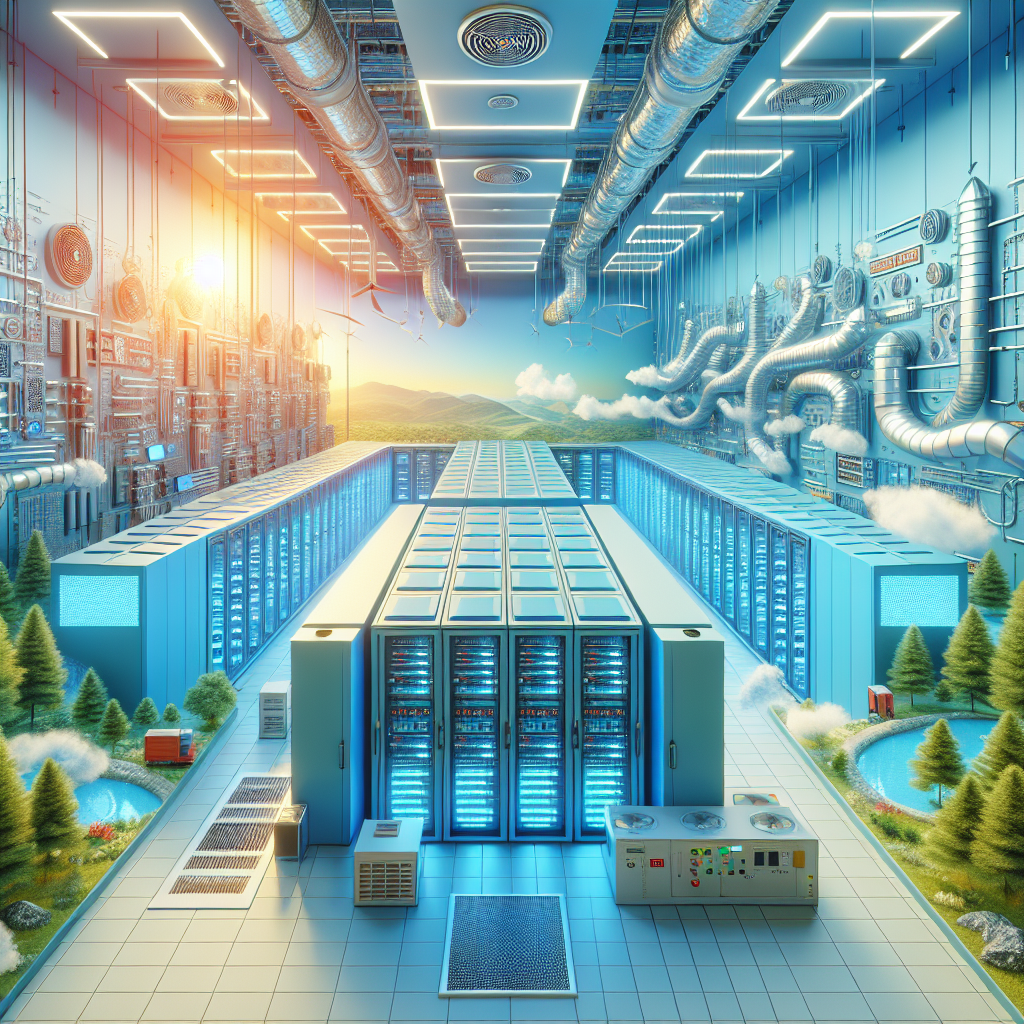In today’s digital age, data centers have become essential to the functioning of businesses and organizations around the world. These facilities house and process massive amounts of data, and their operations require a substantial amount of energy. In fact, data centers are some of the largest consumers of electricity globally.
One of the key components of a data center’s infrastructure is its heating, ventilation, and air conditioning (HVAC) system. The HVAC system is responsible for maintaining optimal temperature and humidity levels within the data center to ensure that the equipment operates efficiently and reliably. However, the HVAC system also plays a crucial role in the overall sustainability of the data center.
Energy consumption is a major concern for data centers, as the continuous operation of servers and other equipment requires a significant amount of power. The HVAC system can account for a large portion of a data center’s energy consumption, as it must work constantly to maintain the ideal environment for the equipment.
To improve the sustainability of data centers, it is essential to optimize the performance of the HVAC system. This can be achieved through various strategies, such as implementing energy-efficient equipment, utilizing free cooling methods, and implementing advanced control systems to reduce energy consumption.
Energy-efficient HVAC equipment, such as high-efficiency chillers and variable-speed drives, can significantly reduce energy consumption and lower operating costs. Free cooling methods, such as using outside air to cool the data center during cooler months, can also help reduce energy usage and decrease the reliance on mechanical cooling systems.
Advanced control systems, such as building automation systems, can optimize the operation of the HVAC system based on factors such as temperature, humidity, and equipment load. By continuously monitoring and adjusting the HVAC system, data centers can improve energy efficiency and reduce their environmental impact.
In addition to optimizing the HVAC system, data centers can also explore other sustainable practices to reduce their overall energy consumption. This can include implementing virtualization technologies to consolidate servers and reduce the number of physical machines, as well as utilizing renewable energy sources such as solar or wind power.
Overall, understanding the role of HVAC in data center sustainability is crucial for organizations looking to reduce their environmental footprint and lower operating costs. By implementing energy-efficient HVAC equipment, utilizing free cooling methods, and implementing advanced control systems, data centers can improve their sustainability while ensuring the reliable operation of their equipment.


Leave a Reply